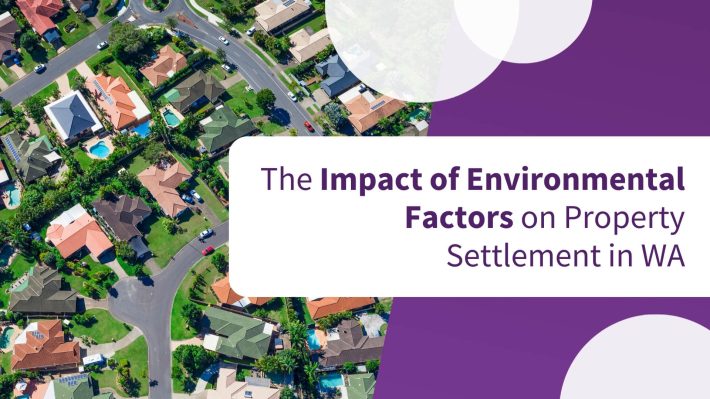Post-Settlement Responsibilities: Myth-Busting Buyer and Seller Obligations After the Deal Is Done

It’s easy and wishful to think that once property settlement is over, there’s nothing more to worry about. After all the hard work, it’s now time to relax and enjoy your new property.
While that’s mostly true, it can be helpful to be aware of a few remaining responsibilities that may arise after settlement. This is where KDD Conveyancing’s professional training and 25 years of experience come in handy, because understanding the types of issues that can be identified early in the settlement process can also help you to avoid costly surprises.
For example, discovering after settlement that the air-conditioning has broken down could mean thousands in repairs or replacement. Or you might find the building doesn’t comply with a zoning law, which then becomes your responsibility.
Being aware of these issues early can make a big difference.
Identifying such issues requires great diligence, attention to detail, time, and an intricate understanding of the property transfer process. KDD Conveyancing Services can provide this high-quality, professional service, so you can rest assured that the proper checks and processes will be carried out with care and accuracy.
KDD Conveyancing Services will flag any potential issues early in the process, helping you avoid potential pitfalls and experience a smooth property settlement.
What Does “Settlement” Actually Mean?
Settlement is the finalisation of a property transaction and transfer of a property’s ownership from seller to buyer. As the WA Consumer Protection explains, it is when the conditions of the contract of sale have been met.
The buyer and seller agree on a settlement date, and the settlement period usually lasts 30 to 90 days.
At the settlement date, typically:
- The balance of the property purchase price is paid to the seller
- The buyer receives the property title and becomes the registered owner
- The buyer takes possession of the property
Because many of the tasks associated with a settlement can be complex, we highly recommend that sellers and buyers engage a professional to guide them through this process.
Thankfully, the evolution of digital technology has made settlement smoother. Many tasks are automated, and parties don’t need to be physically present to complete settlement.
Buyers and Sellers Still Have Obligations After Settlement
Firstly, it’s important to note that in Western Australia, there is no cooling-off period, so once you sign the contract, there is no reversing the sale.
In addition, below are the main post-settlement obligations that may occur and to be aware of before contracts are signed to prepare for these.
Financial adjustments
At settlement, charges such as rates or strata levies are adjusted between the buyer and the seller. While the seller is responsible for these charges up to and including the day of settlement, the purchaser is responsible for them from the day after settlement.
The buyer needs to pay land transfer duty, otherwise known as stamp duty, before they can transfer the property title to their name. In Western Australia, transfer duty is typically paid on or before settlement. For off-the-plan properties where titles are yet to be issued, payment may be deferred for up to three years if construction is still in progress.
Sellers may need to pay GST directly to the tax office upon settlement of new residential property.
Unfortunately, if expenses have not been properly adjusted, one of the parties will have to bear any costs that weren’t accounted for. This is why having a conveyancer who can handle financial adjustments with precision and care is invaluable.
Making property vacant for buyer
After settlement, the seller needs to ensure the property is not occupied, vacant, and available for the buyer to move in. WA Consumer Protection also advises the seller to remove all vehicles, rubbish, and chattels other than the chattels sold with the property, such as dishwashers or light fittings.
Once settled, the seller must make the property vacant and provide the buyer with any keys, access devices, or security codes.
If it is their primary place of residence, the seller can remain in the property until noon the day after settlement. However, they are liable for any damage incurred during this time.
Tenancy agreements
Where the seller is under an existing tenancy agreement, refer to the WA Residential Tenancy Act to find out what your obligations are as a buyer or seller of the property.
At a minimum, it should be noted on the Contract of Sale that the buyer is aware that the property is leased (including the type of tenancy and amount of rent currently being paid).
Building-related issues post-settlement
Any building issues found post-settlement, such as a leaking balcony, will be the purchaser’s responsibility to fix. It may be covered by the home’s building warranty or owner’s corporation, but in any instance of building issues found post-settlement, you may need to seek advice from your conveyancer or a reputable legal office.
This is why it is important to include a Structural Defect condition in the Contract and have a comprehensive building inspection completed in accordance with this condition prior to settlement. Conducting a building inspection before purchase can help you identify such issues and WA Consumer Protection can provide some guidance.
If the report identifies any issues covered by the contract condition, the buyer may request the seller to make the necessary repairs pursuant to the contract’s terms. Usually, this includes a timeframe for notice of the defect and a specific process the parties need to follow to have any defects remedied.
After settlement, the property becomes the responsibility of the purchaser.
Beware of agent misrepresentations
If you have negotiated something with an agent, ensure this is included in the contract. For example, if an agent advises a buyer that the residence has the necessary council approvals, and it is found that this was not the case and this declaration is not in the contract, then the buyer may find that they do not have the grounds to terminate the contract or be otherwise compensated.
It is best not to rely solely on the agent’s representations and instead run these by your conveyancer and include them in the contract. Ensuring a contextual paper trail or “receipts” is also useful to evidence any communication between parties.
Special conditions
Special conditions put in place in the contract require the relevant party to fulfil these obligations. For example, if the buyer has requested that the defect in the stairs be fixed at settlement and it was not done, then the seller needs to rectify this, or the buyer may have grounds to terminate the contract of sale.
Your conveyancer can help you negotiate and update you about these special conditions.
Title and Latent defects
Any title defects found post-settlement are the buyer’s liability. However, a conveyancer can help you organise the purchase of title insurance at settlement to help protect you against these issues. An example is if you find out a fence on the property was illegally built.
A conveyancer can help check for any encumbrances a seller may have and request that they be cleared as part of the contract of sale. Otherwise, if the purchaser finds out about this post-settlement, it may become their responsibility.
In cases where property infrastructure, such as water or septic systems, is shared informally between neighbours without legal agreements, issues may arise after settlement. These do not typically fall under title defects but may be classified as latent defects or even misrepresentations if not properly disclosed by the seller or were not accessible for inspection during the settlement process. In some cases, these may be managed through your property insurance provider if the builder’s work is still within the active warranty period. If you suspect that the property you are buying has shared infrastructure with a neighbouring property, it is best to disclose this to your settlement agent as well as seek legal advice prior to entering into the contract.
Paperwork errors
One of the main risks of taking your property settlement into your own hands is spelling mistakes, wrong addresses, incorrect terms of sale, and missing words that can change the whole meaning of the contract. Engaging a conveyancer that takes great care and attention to detail in their work can help avoid such errors, which can potentially turn out to be expensive.
How KDD Helps You Avoid Post-Settlement Confusion
At KDD Conveyancing, our extensive experience in conveyancing for properties in Western Australia has equipped us with a strong understanding of the issues that can occur post-settlement that buyers and sellers can overlook. These costs can run into the tens of thousands of dollars, and you can avoid this if potential issues are identified early.
We conduct the necessary contract reviews and communicate clearly with you about any issues from the start of your property purchase or selling process. KDD Conveyancing will also handle the necessary tasks with great accuracy and care to save you from an expensive mistake that could cost tens of thousands of dollars.
We will also be on hand to answer any post-settlement questions. Please see us as your partners and get in touch with us to discuss how we can make for a stress-free property settlement process from start to post-settlement.



